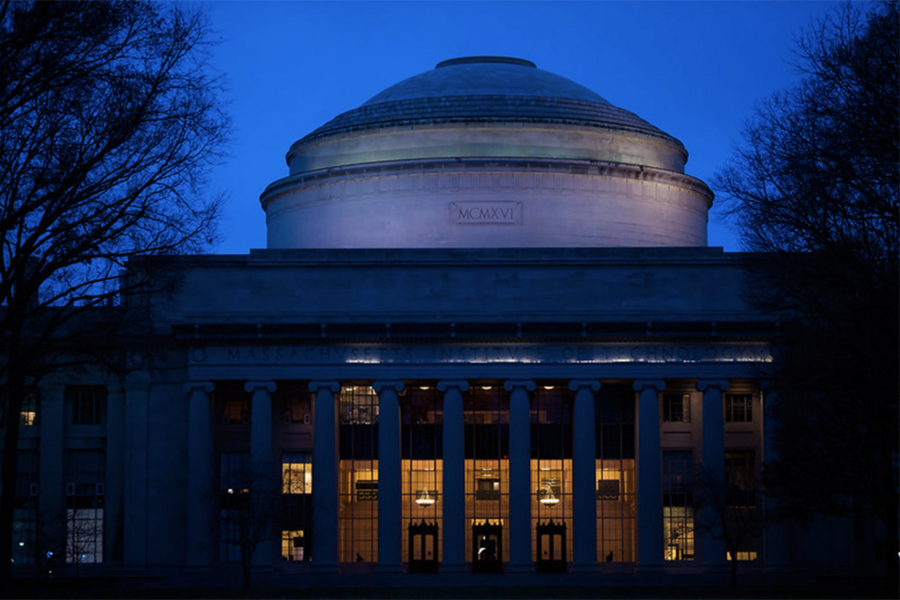
New body will grow and enhance computing infrastructure and services for MIT’s research community.
Read this story at MIT News
As the computing and data needs of MIT’s research community continue to grow — both in their quantity and complexity — the Institute is launching a new effort to ensure that researchers have access to the advanced computing resources and data management services they need to do their best work.
At the core of this effort is the creation of the new Office of Research Computing and Data (ORCD), to be led by Professor Peter Fisher, who will step down as head of the Department of Physics to serve as the office’s inaugural director. The office, which formally opens in September, will build on and replace the MIT Research Computing Project, an initiative supported by the Office of the Vice President for Research, which contributed in recent years to improving the computing resources available to MIT researchers.
“Almost every scientific field makes use of research computing to carry out our mission at MIT — and computing needs vary between different research groups. In my world, high-energy physics experiments need large amounts of storage and many identical general-purpose CPUs, while astrophysical theorists simulating the formation of galaxy clusters need relatively little storage, but many CPUs with high-speed connections between them,” says Fisher, the Thomas A. Frank (1977) Professor of Physics, who will take up the mantle of ORCD director on Sept. 1.
“I envision ORCD to be, at a minimum, a centralized system with a spectrum of different capabilities to allow our MIT researchers to start their projects and understand the computational resources needed to execute them,” Fisher adds.
The Office of Research Computing and Data will provide services spanning hardware, software, and cloud solutions, including data storage and retrieval, and offer advice, training, documentation, and data curation for MIT’s research community. It will also work to develop innovative solutions that address emerging or highly specialized needs, and it will advance strategic collaborations with industry.
The exceptional performance of MIT’s endowment last year has provided a unique opportunity for MIT to distribute endowment funds to accelerate progress on an array of Institute priorities in fiscal year 2023, beginning July 1, 2022. On the basis of community input and visiting committee feedback, MIT’s leadership identified research computing as one such priority, enabling the expanded effort that the Institute commenced today. Future operation of ORCD will incorporate a cost-recovery model.
In his new role, Fisher will report to Maria Zuber, MIT’s vice president for research, and coordinate closely with MIT Information Systems and Technology (IS&T), MIT Libraries, and the deans of the five schools and the MIT Schwarzman College of Computing, among others. He will also work closely with Provost Cynthia Barnhart.
“I am thrilled that Peter has agreed to take on this important role,” says Zuber. “Under his leadership, I am confident that we’ll be able to build on the important progress of recent years to deliver to MIT researchers best-in-class infrastructure, services, and expertise so they can maximize the performance of their research.”
MIT’s research computing capabilities have grown significantly in recent years. Ten years ago, the Institute joined with a number of other Massachusetts universities to establish the Massachusetts Green High-Performance Computing Center (MGHPCC) in Holyoke to provide the high-performance, low-carbon computing power necessary to carry out cutting-edge research while reducing its environmental impact. MIT’s capacity at the MGHPCC is now almost fully utilized, however, and an expansion is underway.
The need for more advanced computing capacity is not the only issue to be addressed. Over the last decade, there have been considerable advances in cloud computing, which is increasingly used in research computing, requiring the Institute to take a new look at how it works with cloud services providers and then allocates cloud resources to departments, labs, and centers. And MIT’s longstanding model for research computing — which has been mostly decentralized — can lead to inefficiencies and inequities among departments, even as it offers flexibility.
The Institute has been carefully assessing how to address these issues for several years, including in connection with the establishment of the MIT Schwarzman College of Computing. In August 2019, a college task force on computing infrastructure found a “campus-wide preference for an overarching organizational model of computing infrastructure that transcends a college or school and most logically falls under senior leadership.” The task force’s report also addressed the need for a better balance between centralized and decentralized research computing resources.
“The needs for computing infrastructure and support vary considerably across disciplines,” says Daniel Huttenlocher, dean of the MIT Schwarzman College of Computing and the Henry Ellis Warren Professor of Electrical Engineering and Computer Science. “With the new Office of Research Computing and Data, the Institute is seizing the opportunity to transform its approach to supporting research computing and data, including not only hardware and cloud computing but also expertise. This move is a critical step forward in supporting MIT’s research and scholarship.”
Over time, ORCD (pronounced “orchid”) aims to recruit a staff of professionals, including data scientists and engineers and system and hardware administrators, who will enhance, support, and maintain MIT’s research computing infrastructure, and ensure that all researchers on campus have access to a minimum level of advanced computing and data management.
The new research computing and data effort is part of a broader push to modernize MIT’s information technology infrastructure and systems. “We are at an inflection point, where we have a significant opportunity to invest in core needs, replace or upgrade aging systems, and respond fully to the changing needs of our faculty, students, and staff,” says Mark Silis, MIT’s vice president for information systems and technology. “We are thrilled to have a new partner in the Office of Research Computing and Data as we embark on this important work.”
Story image credit: Gretchen Ertl